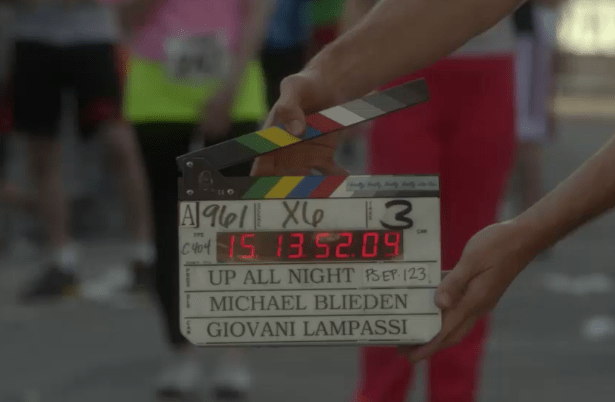1. It is never appropriate to yell or speak brusquely to people on set. We all lose our cool sometimes, but it’s never okay.
2. As a guest director, you are not there to make it your own. You are there to help.
3. As long as the audience understands the geography of the actors in a room, you can “cross the line” as much as you want.
4. Unless you are on a soundstage all day, always have your foul weather gear in your backpack.
5. Line producers always win, but if you make them a little uncomfortable with the scope or cost of what you are trying to do, then you are doing your job properly.
6. You will only get 1 good take with two-year-olds before they melt down. Don’t let anyone tell you differently, even if the kids were a dream to work with last season when they were one-year-olds.
7. Departments tend to eat lunch together. Any one of them will be happy if you join. Pick a different department every day.
8. Terrible pilots can turn into amazing shows. Always say yes if you like the people.
9. Finishing on time is your job, not the A.D.’s.
10. The difference between a single-camera tv show and a feature film is about 5 less setups per scene.
11. Private rehearsals are way better than rehearsals where 80 crew members are watching in stony silence while you try to figure something out that you’ve been struggling to visualize all week.
12. Control your set. Step in respectfully and make a decision everyone can live with when producers and actors are bogged down in a brainstorming session.
13. Don’t sit at video village. Stay close to camera. They’ll get you your own monitors, or you can lurk behind the focus pullers.
14. Go back to video village before moving on from every setup, and when you do go back there you should run. It reminds everyone that we are always in a hurry.
15. Everything that happens behind the camera is theater, so be aware of what kind of performance you are giving.
16. Always have a plan, and always be willing to throw it in the garbage.
17. Every single person on set thinks they could do your job. About twenty-five percent of them are right. (percentage varies in either direction)
18. Never give actors notes until after take two. If the writers don’t know about this, they will understand it when you explain it to them.
19. The costume department chicks are always the most interesting.
20. Showrunners have an enormous amount of pressure on them, and they just want to know that you’ll get at least one perfect take the way they pictured it. If you do that, then you’ll have a little room to experiment. If you were the showrunner, that’s how you’d feel.
21. TV stars don’t like to do a lot of takes. Day players just want to get it right.
22. Bring a camera on every location scout, and if the scene is complicated, shoot it with p.a.’s, the person who owns the property, the location manager, or anyone standing around who can read the lines. (This is most useful on commercials where every second needs to time out.)
23. When a large corporation says that they’d love to pay you more but they simply can’t afford it, they are lying. It’s the inverse that is true. They would hate to pay your more, and they can definitely afford it.
24. Directors sometimes hire food trucks as gifts to the crew. I’ve looked into it and it really is a custom. Figure out how you feel about this and don’t spend the money if you don’t want to. On some shows the writer will split it with you.
25. Agents really can help you, but your agent is not responsible for your career, you are. Jill Soloway once said to me “I try to think of my showbiz agent more like a travel agent. I’d never call my travel agent and ask, ‘So what’s the deal, are you getting me a vacation this year?’ I’d call and say ‘Here is where I’m going, please find me the best rate.'”

26. Be nice to absolutely everyone. It’s your set, and you set the tone.
27. Tone is everything.




“Be nice to absolutely everyone. It’s your set, and you set the tone.”
Even on nonfiction shoots, this is absolutely vital. Unfortunately, even in my world, many people don’t get this.
Thanks to director Wayne Rose who sent me this response:
http://drnorth.wordpress.com/2011/02/07/how-to-be-a-motion-picture-director/